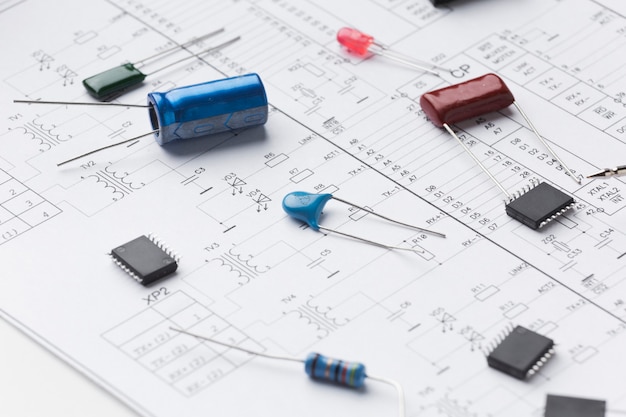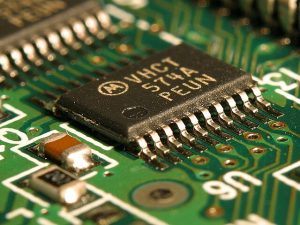In today's technologically advanced world, electronic components play a pivotal role in powering a wide range of devices and systems. From consumer electronics to industrial machinery, these components have revolutionized the way we live and work. In this blog post, we will delve into the fascinating applications of electronic components, showcasing their versatility and impact across various industries.
- Consumer Electronics:
Electronic components are the backbone of consumer electronics, enabling us to stay connected, entertained, and productive. From smartphones and laptops to smart home devices and wearables, these components drive the functionality and performance of our everyday gadgets. Integrated circuits (ICs), transistors, and resistors are just a few examples of essential components that make these devices possible. - Automotive Industry:
The automotive industry heavily relies on electronic components for safety, efficiency, and comfort. Advanced driver-assistance systems (ADAS), infotainment systems, and electric vehicle technology all depend on a complex network of sensors, microcontrollers, and power management components. These components enable features such as collision avoidance, adaptive cruise control, and real-time vehicle diagnostics. - Healthcare and Medical Devices:
Electronic components have revolutionized healthcare by enabling the development of sophisticated medical devices. From diagnostic equipment like MRI machines and ultrasound scanners to implantable devices such as pacemakers and insulin pumps, these components ensure accurate measurements, precise control, and reliable performance. Sensors, microprocessors, and memory devices are crucial in these applications. - Industrial Automation:
In the realm of industrial automation, electronic components are essential for optimizing processes, improving efficiency, and ensuring worker safety. Programmable logic controllers (PLCs), sensors, and actuators enable precise control and monitoring of machinery and production lines. These components facilitate tasks such as robotic assembly, quality control, and predictive maintenance. - Renewable Energy:
The transition to renewable energy sources heavily relies on electronic components. Solar panels, wind turbines, and energy storage systems all require sophisticated power electronics for efficient energy conversion, grid integration, and energy management. Components like inverters, power converters, and energy storage devices play a crucial role in harnessing and distributing clean energy. - Aerospace and Defense:
The aerospace and defense industries demand highly reliable and rugged electronic components for critical applications. From avionics systems and satellite communication to missile guidance and radar systems, these components must withstand extreme conditions and deliver exceptional performance. Radiation-hardened components, high-temperature materials, and advanced circuit designs are vital in this sector.
Conclusion:
Electronic components have transformed our world, powering a vast array of devices and systems across industries. From consumer electronics to healthcare, automotive to renewable energy, their applications are diverse and far-reaching. As technology continues to advance, we can expect even more innovative uses for electronic components, driving progress and shaping the future.




+ There are no comments
Add yours